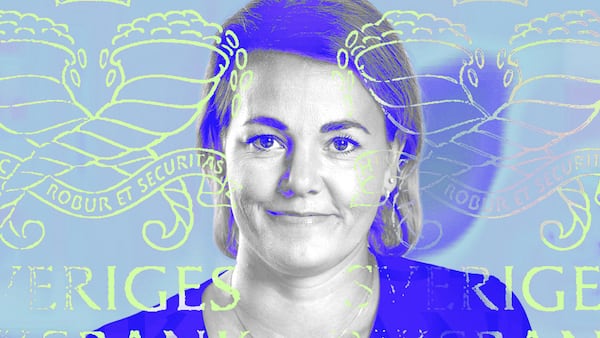A Bank of England tech expert defended a UK central bank digital currency, saying that a digital pound would not be a government spy tool.
“We don’t tell you how to spend your £10 notes,” said William Lovell, head of future technology at the BoE. “We don’t want to tell you how to spend a digital £10 note either.”
The BoE is currently consulting on how a digital pound might work. It is just one nation that is considering a CBDC.
But critics say CBDCs give governments unprecedented visibility into and control of their citizens’ payments, and they have tended to be successful in authoritarian regimes like China. These critics include Florida governor and potential US presidential candidate Ron DeSantis, who this week again hit out at the idea of a digital dollar.
NOW READ: Attacks on CBDCs highlight crypto’s new battleground
DeSantis said during a press conference on Tuesday that “they” — presumably Democrats — are pushing a digital dollar in order to entirely replace cash.
DeSantis has backed a bill that would ban CBDCs in Florida, saying it was a measure to safeguard residents from state surveillance.
In the UK, critics including lawmakers in the House of Lords, have echoed these privacy concerns.
Lovell, however, said that if the UK government wanted to exercise control over the money flows of citizens, it could do so by manipulating existing payments systems like debit cards or Apple Pay.
“We have those levers to pull now and we deliberately don’t pull them,” Lovell said. “That’s a decision, and it’s not going to change. In the UK we’re really clear about this, and it’s in the consultation as well.”
Private wallets
The BoE published its consultation on the digital pound along with His Majesty’s Treasury in February. The consultation is intended to collect feedback from the public to inform the bank’s initial ideas about how a “Britcoin” might work before it seriously knuckles down on building the required infrastructure.
The paper said that if the BoE was to create a digital pound, it would provide the currency and the central infrastructure, including what it called a “core ledger”. Private sector companies would provide the wallets to end users, which would then interface with the BoE.
NOW READ: CBDCs are ‘1984 on steroids’ critics warn as supporters say Britcoin will save the economy
This structure would safeguard consumer privacy, the BoE said, because users would interact with the wallets, not the bank, and their data would be recorded anonymously on the core ledger.
Know your customer and anti-money laundering checks would be done by the wallet service provider, not by the government.
NOW READ: Swedish CBDC head: The state doesn’t care how people pay for things
“With the way we’re thinking about it in our platform model, that would sit at the wallet level rather than on the ledger,” Lovell said.
That structure would also allow for what Lovell said was the bank’s “second order response” to increasing digitisation of money.
A digital pound would not just be about responding to an increasingly cashless society, it would also enable payments service providers to innovate using new tech like smart contracts, he said.
Lovell was speaking at the annual conference of the Savings and Investing Alliance.



